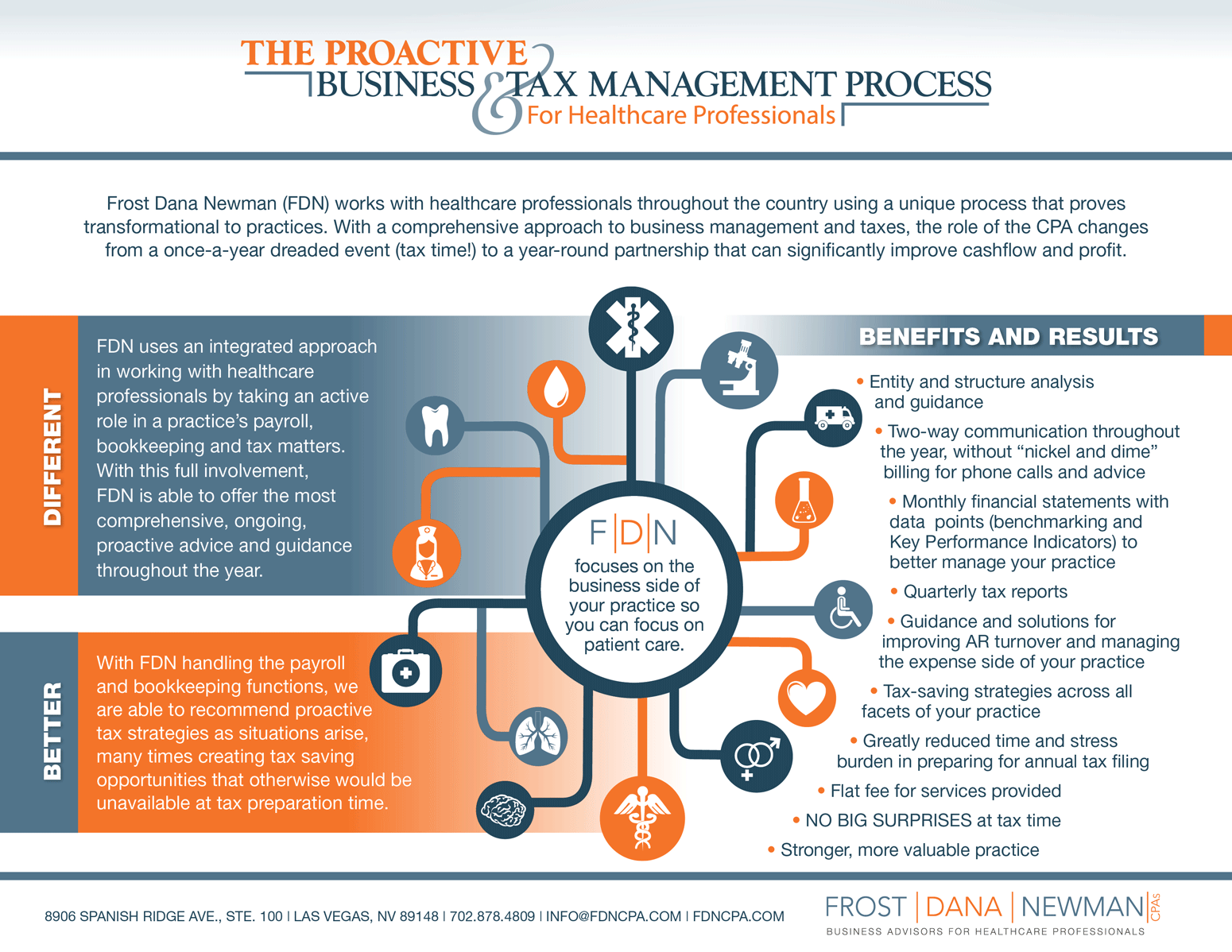CPAs FOR LOCUM TENENS

Locum tenens have very special needs when it comes to understanding, planning for and structuring their employment and income opportunities. The right choices, decisions and paperwork can make a tremendous difference in minimizing taxes. You need a CPA firm that understands how to navigate the complexities that come from locum tenens work. The CPAs at Frost Dana Newman know the intricacies of locum tenens tax matters, including ramifications of working across multiple states and with multiple salary or compensation streams. Our clients include actual locum tenens (individuals), medical practices that hire or subcontract with locum tenens and locum tenens placement agencies. This experience has given us a full perspective and understanding of the locum tenens tax environment, allowing us to best position each client from a tax perspective. Let our CPAs remove your worries about what you should or should not be doing. We know locum tenens, and we know how to help minimize their tax liability and maximize wealth building. Talk with our CPAs about your needs.
FREQUENTLY ASKED QUESTIONS BY LOCUM TENENS
Am I eligible to save in a retirement account?
As an independent contractor, the physician may have a more lucrative retirement plan(s) than the typical employee 401k Plan. Creating a SEP, Keogh Plan,
or other self-employed retirement plan before December 31 will allow the physician to contribute to the plan(s) before April 15 of the following year
up to the lesser of $53,000 or 25% (100% for some plans) of net self-employed income for the 2015 tax year. The physician might also qualify for a
traditional or Roth IRA.
As a locum tenens will I be treated as an employee or an independent contractor?
Locum tenens physicians and nurse practitioners are considered independent contractors. An independent contractor’s earnings are reported on Form 1099,
as opposed to Form W2 traditional employees are accustomed to seeing at the end of each year. Unlike a traditional employee, taxes are not withheld
from an independent contractor’s paycheck over the course of the year.
How do taxes work as an independent contractor?
There are advantages to being taxed as an independent contractor. For example, independent contractors can deduct certain expenses that traditional employees
cannot. However, an independent contractor is also subject to Social Security and Medicare taxes (self-employment taxes) in addition to federal and
state income tax and doesn’t have the benefit of an employer to withhold taxes and match the social security and Medicare tax.
Will I need to file a tax return in each state I work in?
A locum tenens physician will generally be subject to state income taxes in the state of each work assignment to the extent the state has a personal income tax. However, a state tax credit for the non-resident state tax liability is generally available to reduce the home state tax (state of residence generally taxes all income). This credit should fully or partially eliminate any double state taxation. The states of AK, FL, NV, SD, TN, TX, WA, and WY have no tax on this type of personal service income.

